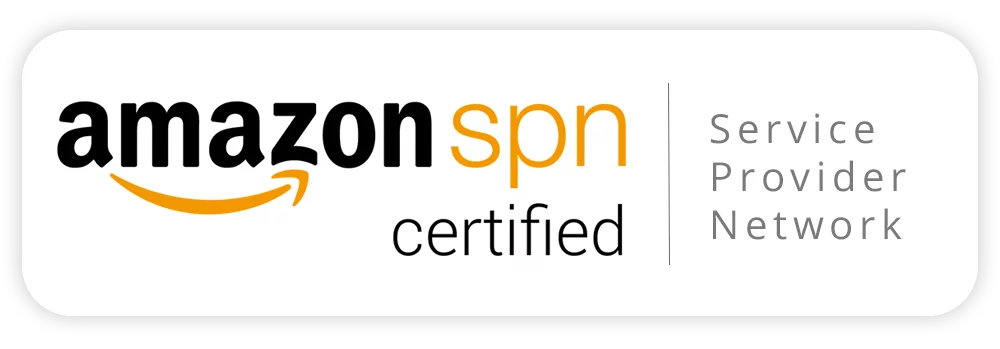Table of Contents
- Why does measuring PPC success matter?
- Key metrics to track PPC campaign performance
- Tools that help in tracking PPC success
- Steps to analyze PPC performance effectively
- Common mistakes while measuring PPC success
- Conclusion
- FAQs
Pay-Per-Click (PPC) advertising is one of the most powerful means of generating immediate traffic and sales. Yet placing advertisements alone does not suffice. Companies need to monitor their performance to realize if they are receiving value for money from their investment. In the aftermath of improper measurement, money can go down the drain, and opportunities may be lost.
However, most brands look for professional assistance, like the best Google Ads Agency in Indore, so that their campaigns are optimized and trackable. Yet with professional assistance, entrepreneurs need to comprehend how to analyze results clearly.
This blog is going to describe how companies can measure the success of their PPC advertisements simply, using practical metrics and strategies.
Why does measuring PPC success matter?
PPC investment costs money, effort, and time. But success is not merely a matter of placing ads—it’s about getting results. Measuring the success of PPC enables businesses to:
- Know they are targeting the appropriate audience.
- Know the return on investment (ROI).
- Discover weaknesses and make campaigns better.
- Budget for the success of ads.
- Compete in the digital market.
Furthermore, without measurement, there is a danger of overspending on ads that yield little or no return.
Key metrics to track PPC campaign performance
The most accurate way to measure success in PPC is by monitoring specific statistics. Every statistic provides important information on how advertisements are doing.
- Click-Through Rate (CTR)
CTR indicates the number of individuals who clicked on your ad upon viewing it. High CTR indicates that the ad is interesting and relevant.
Formula:
CTR = (Clicks ÷ Impressions) × 100
Example: For an ad that receives 200 clicks out of 10,000 impressions, the CTR is 2%.
- Conversion Rate
Conversions are the activities you desire customers to perform, such as purchases, sign-ups, or downloads. Increased conversion rate indicates ads are not only drawing clicks but also producing valuable outcomes.
- Cost-Per-Click (CPC)
CPC informs you of the cost per click. Lower CPC indicates you are receiving traffic at a cheaper cost. Nevertheless, the focus must be on balancing CPC with conversion quality.
- Cost Per Conversion (CPA)
CPA is how much you spend to get a lead or customer. This is a direct measure of profitability.
Formula:
CPA = Total Spend ÷ Conversions
- Return on Ad Spend (ROAS)
ROAS is the amount of revenue your ads bring in versus cost.
Formula:
ROAS = Revenue ÷ Ad Spend
If you spend $500 and make $2,000 in sales, then ROAS is 4x.
- Quality Score
Google gives ads a Quality Score depending on relevance, CTR, and landing page quality. The higher scores, lower costs and better ad positions.
- Impression Share
This indicates the percentage of times your ad showed up compared to total opportunities. Low impression share can indicate low budget or high competition.
Tools that help in tracking PPC success
There are some tools that ease PPC tracking. Companies can apply these tools for clear insights:
- Google Ads Dashboard – Displays clicks, impressions, conversions, and expenditure.
- Google Analytics – Follows user activity after ad clicks.
- SEMrush or Ahrefs – Competitor insights and performance metrics.
- Conversion Tracking Tools – Tracks leads, sales, or form submissions.
Moreover, these tools collectively provide an overall picture of ad performance.
Steps to analyze PPC performance effectively
To effectively measure PPC success, companies can follow these steps:
- Set Clear Goals
Determine if the target is traffic, leads, or sales.
- Measure Conversions Correctly
Utilize tracking codes and analytics to record each activity.
- Compare Data to Industry Benchmarks
This indicates whether your campaign is doing better or worse than average.
- Check ROI Often
Profitability is more important than clicks. Always connect ad spend to revenue.
- Constantly Optimize Campaigns
Eliminate poor-performing keywords, experiment with new ad copies, and modify targeting.
Common mistakes while measuring PPC success
Most companies get their success measures wrong. The most common errors are:
- Concentrating on clicks, not conversions.
- Overlooking customer lifetime value.
- Not monitoring mobile vs desktop performance.
- Forgetting to review landing page effectiveness.
- Making decisions too hastily without sufficient data.
However, those errors prevent more efficient use of PPC budgets.
Conclusion
Monitoring the success of PPC ads is essential to business development. With the monitoring of appropriate metrics such as CTR, conversion rate, and ROAS, businesses can know what is effective and what is not. Google Analytics and Ads Dashboard are tools that facilitate monitoring and its accuracy.
Additionally, specialized advice can help businesses maximize strategies. Most businesses opt for a credible digital marketing company in Indore to achieve long-term success with PPC campaigns.
Finally, PPC success comes from data-driven decisions, regular optimization, and a clear understanding of campaign goals. Businesses that measure results consistently are the ones that enjoy sustainable growth.
FAQs
Q 1: What is the most crucial figure to use to measure PPC success?
The most critical figure varies based on business objectives, yet conversion rate and return on ad spend (ROAS) typically indicate whether or not campaigns translate into actual results successfully.
Q 2: When should businesses check PPC campaign performance?
Businesses should check PPC performance weekly for tweaking and monthly for in-depth analysis. Ongoing monitoring optimizes campaigns, minimizes costs, and maximizes ad returns effectively.
Q 3: Can small businesses measure PPC success without professional assistance?
Yes, small businesses can measure clicks, conversions, and ROI using Google Ads and Analytics. Still, professional assistance guarantees better optimization and long-term profitability.
Q 4: Why do companies find it difficult to measure PPC success precisely?
Most companies measure only clicks, overlook conversion tracking, or do not have specific goals. Without full data analysis, PPC campaigns can’t be measured or optimized properly.





